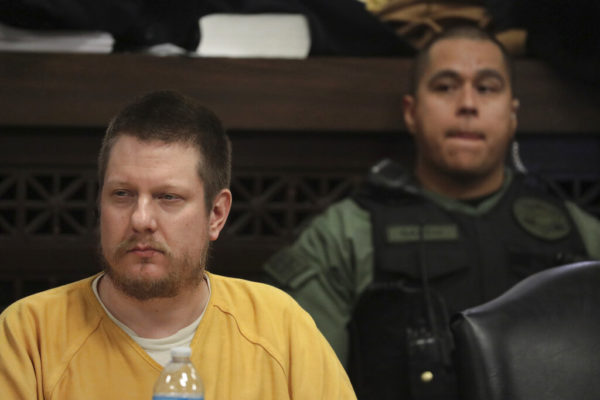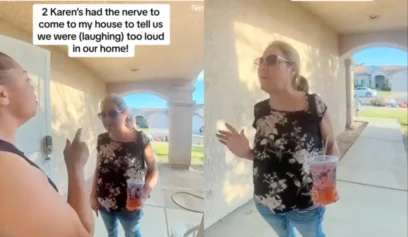CHICAGO (AP) — The Illinois Supreme Court on Tuesday let stand a prison sentence of less than seven years for a white Chicago police officer convicted of killing black teenager Laquan McDonald that many criticized as far too lenient.
The 4-2 majority provided no explanation for its decision, which denies a rare bid by the Illinois attorney general’s office and a special prosecutor to get the state’s highest court to toss a lower court’s sentence. One judge dissented and one offered a partial dissent.

FILE – In this Jan. 18, 2019 file photo, former Chicago police Officer Jason Van Dyke attends his sentencing hearing at the Leighton Criminal Court Building in Chicago, for the 2014 shooting of Laquan McDonald. The wife of the white Chicago police officer who fatally shot the black teenager McDonald said on Wednesday, Feb. 13, 2019, that her husband has been assaulted by inmates in his cell at a Connecticut prison. The Chicago Sun-Times reports that Tiffany Van Dyke says Jason Van Dyke had been placed in the prison’s general population before being assaulted. (Antonio Perez/Chicago Tribune via AP, Pool, File)
McDonald was carrying a small knife and moving away from officers when Jason Van Dyke shot him in October 2014. Police video of the shooting that the city released in 2015 under court order showed Van Dyke firing 16 bullets into McDonald, many of them after the 17-year-old fell to the ground.
Jurors in October convicted Van Dyke of second-degree murder and 16 counts of aggravated battery. The former carries a maximum 20-year prison term. Each count of aggravated battery carries up to 30 years.
Cook County Judge Vincent Gaughan sentenced Van Dyke for second-degree murder only, citing guidelines. Van Dyke likely would have received a stiffer sentence if he’d been sentenced on the 16 counts of battery.
The February request by Illinois Attorney General Kwame Raoul and Kane County State’s Attorney Joseph McMahon argued that Cook County Judge Vincent Gaughan got the guidelines wrong in his sentencing in January.
Justice P. Scott Neville Jr. noted in his dissent that Gaughan pointed to a key 2004 Illinois Supreme Court case in justifying the sentence, but that he referred only to a dissenting opinion.
“A dissenting opinion is not the law of Illinois,” Neville wrote. “Indeed, it is the opposite.”
He added that allowing a sentence that’s not grounded in the proper law undermines the public’s sense of justice.
The Illinois Supreme Court’s decision was the latest chapter in a saga that has included massive protests, the firing of the police superintendent and the ouster of Cook County’s top prosecutor by voters a few months later.


